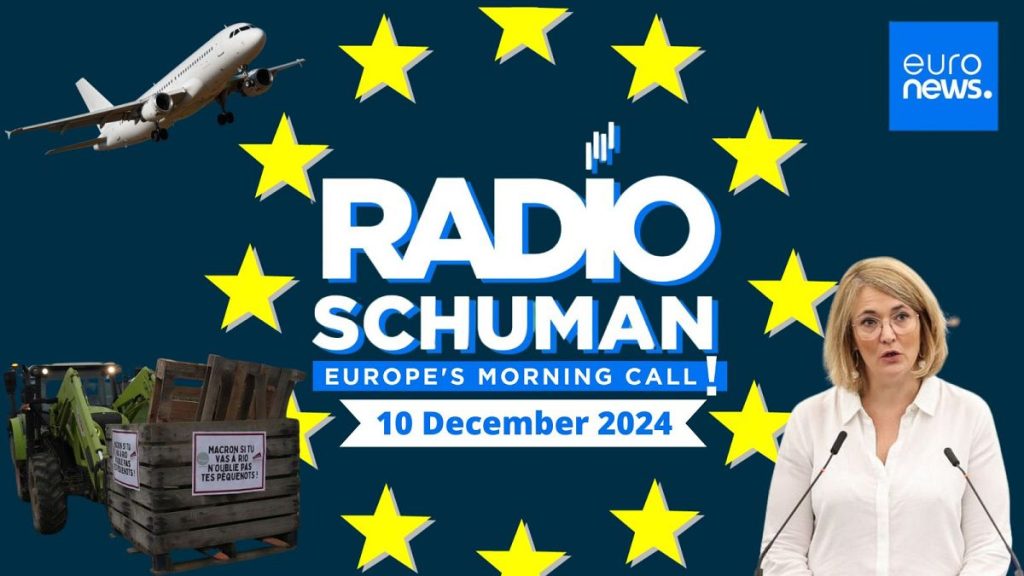The recent signing of the EU-Mercosur trade agreement by European Commission President Ursula von der Leyen marks a significant, yet contentious, step in a two-decade-long negotiation process. This landmark deal aims to establish a free trade area between the European Union and the Mercosur bloc, comprising Argentina, Brazil, Paraguay, and Uruguay. While touted by proponents as a boon for economic growth and international cooperation, the agreement faces substantial opposition, most notably from France, raising concerns about its potential impact on domestic industries, environmental standards, and the overall balance of benefits and risks for the EU. The road ahead for the EU-Mercosur deal is fraught with challenges, requiring careful navigation of political hurdles and intense scrutiny from various stakeholders.
France’s resistance stems from anxieties about the potential influx of South American agricultural products, particularly beef and dairy, which could undercut European farmers already struggling with thin margins. French farmers fear that the agreement will expose them to unfair competition from Mercosur producers who operate under less stringent environmental and labor regulations, potentially leading to a decline in domestic agricultural production and rural livelihoods. This concern is shared by other EU members with significant agricultural sectors, like Ireland and Poland, creating a potential alliance that could complicate the ratification process. Beyond the immediate economic implications, France also voices concerns about the environmental impact of the agreement, particularly the potential for increased deforestation in the Amazon rainforest to accommodate expanded agricultural activities in Mercosur countries.
The EU-Mercosur agreement’s ratification process is complex, involving multiple layers of approval. Beyond the initial signing by the European Commission President, the deal requires the consent of the European Council, representing the member states, and the European Parliament. France, leveraging its influence within the EU, is actively working to build a coalition of member states to oppose the agreement. Successfully blocking the deal requires the support of at least four countries representing 35% of the EU’s population, a threshold France is striving to reach. The European Parliament, representing the citizens of the EU, also holds significant sway over the agreement’s fate. Parliamentary committees will thoroughly examine the deal’s provisions, holding public hearings and debates before a final vote. The parliament’s decision will be heavily influenced by public opinion, lobbying efforts from various interest groups, and the assessment of the agreement’s potential economic and societal consequences.
Beyond the political maneuvering and lobbying efforts surrounding the EU-Mercosur agreement, the Radio Schuman podcast delves into other important aspects of the EU’s economic landscape. A segment focuses on the ongoing dialogue between EU ministers and the European Commission regarding the economic performance of individual member states. This review process assesses the progress of each country in achieving its economic targets, identifying challenges, and recommending corrective measures. Such discussions are crucial for ensuring the overall economic health and stability of the EU, promoting convergence among member states, and addressing potential imbalances. The scrutiny applied to national economic plans highlights the EU’s commitment to maintaining fiscal discipline and fostering sustainable growth across the bloc.
The final part of the Radio Schuman podcast shifts its focus to the aviation industry, specifically examining the adoption of sustainable aviation fuels (SAFs) by various airlines. As concerns about the environmental impact of air travel intensify, the transition to SAFs represents a crucial step towards decarbonizing the sector. The podcast explores the progress made by different airlines in incorporating SAFs into their operations, highlighting the challenges and opportunities associated with this transition. The increasing use of SAFs signifies a growing recognition within the aviation industry of the need to reduce its carbon footprint and contribute to global climate goals. The podcast’s examination of this topic underscores the importance of innovation and collaboration in achieving a more sustainable future for air travel.
In essence, the Radio Schuman podcast provides a comprehensive overview of several key issues affecting the European Union, from the complexities of international trade agreements to the intricacies of national economic management and the pursuit of sustainable practices in the aviation industry. The podcast highlights the multifaceted nature of policymaking within the EU, involving diverse stakeholders, complex negotiations, and the delicate balancing of economic interests, social considerations, and environmental concerns. The discussions surrounding the EU-Mercosur agreement, the review of national economic plans, and the focus on sustainable aviation fuels all reflect the EU’s ongoing efforts to navigate a rapidly changing global landscape and address the pressing challenges of our time.

